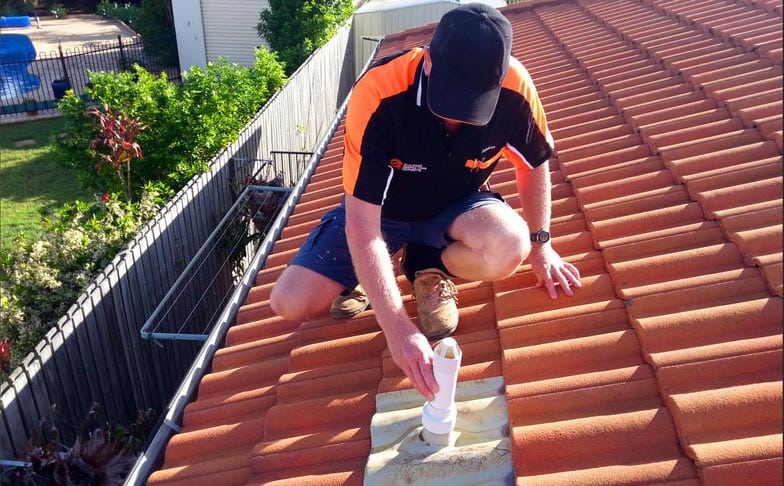I conducted a pre-purchase building inspection on a 6 year-old home and found that the fibre glass ceiling insulation that had been installed prior to the current owners purchase was completely covering 6 down lights throughout the home. When I pointed out this fire safety hazard to the owner, he found and re-read the pre-purchase building inspection report that he commissioned before purchasing the home. Much to his surprise there was no mention of any ceiling insulation, and no mention of the fire safety hazard.
We can assume that the building inspector failed to inspect the inner roof space and failed with his duty of care to notify the homebuyer of the fire safety hazard. If the down lights were in a room (i.e. a kitchen) where they left on for extended periods, the house may have burnt down, and the consequences potentially fatal.
Ceiling insulation that is touching or covering down lights has been identified as the cause of several house fires, which has prompted the state government to require licenses for ceiling insulation installers. In this case the ceiling insulation was not installed in a manner that complied with the Australian standards and most likely was not installed by a licensed person. If there is any type of ceiling insulation in a house that I am inspecting I turn on all down lights in the house and then proceed to inspect the inner roof space, to identify all down lights, and confirm that the ceiling insulation complies with Australian standards.
In another case involving ceiling insulation, I inspected a 4 year old home and found ceiling insulation over the laundry area only which was the area immediately around the inner ceiling opening (the man hole). The owner, who had only owned the house for approximately 3 years, was told by the pre-purchase building inspector at the time that there was ceiling insulation throughout the home.
Obviously the inspector did not get up into the inner ceiling space and did not carry out any type of structural inspection on the roof frame or ceiling frame and gave the buyer misleading and incorrect information about the house they were purchasing.
The moral of the story? – Be careful when engaging a pre-purchase building inspector.
Ask questions like:
- Are you a qualified Builder?
- Do you have liability and professional indemnity insurance?
- Do you get into the ceiling space?
- Do you check to see if the ceiling insulation complies with the Australian standards and is not touching down lights?
- Do you check the showers for water leaks?
Check the history of the building inspector
Check the inspector license number on www.qbsa.qld.gov.au/searchforlicensee See if there has been any action taken against the inspector before you engage him to work for you.
Since ceiling insulation can be costly, knowing what you are getting before purchase of a property is essential so you don’t have the ‘wool pulled over your eyes.’ To do this call upon an ethical building inspector you can trust and who inspects each property with thorough care and diligence.

